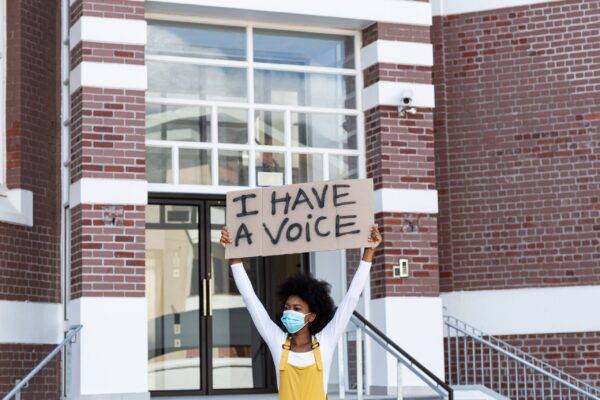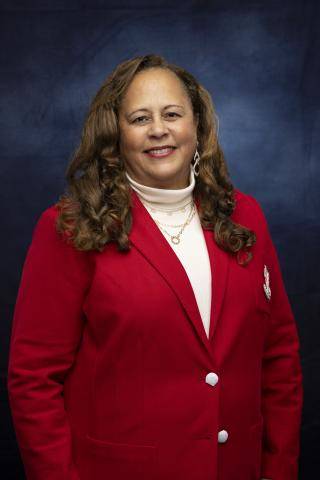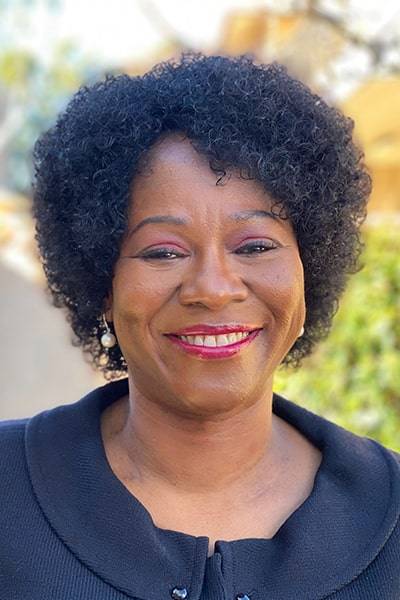By: Bo Tefu, California Black Media
California Legislature Advances Bill to Raise Pay for Inmate Firefighters
The California Legislature is moving forward with a bill to increase wages for incarcerated firefighters who work on the front lines of the state’s wildfire battles.
The Senate Public Safety Committee voted July 8 to approve Assembly Bill (AB) 247, authored by Assemblymember Isaac Bryan (D-Los Angeles). The bill would raise hourly pay for inmate firefighters assigned to active fires from roughly $1per hour to the federal minimum wage of $7.25.
Bryan described the long and difficult shifts these inmates work, especially during the recent wildfires in Los Angeles, some lasting up to 48 hours.
“AB 247 will ensure that incarcerated people on the front line of fire disasters receive fair compensation for their invaluable service during devastating fires,” Bryan said in a bill analysis.
Inmate firefighter Isaiah Nazari, who served in a conservation camp, sent a letter read to the committee noting the disparity in pay compared to professional firefighters. “All lives have value, regardless of incarceration status,” he wrote.
The California State Sheriffs’ Association opposed the bill, citing concerns about increased costs to counties and noting inmates receive sentence reductions for time served in camps. Sen. Kelly Seyarto (R- Murrieta), a retired firefighter, supported the pay increase but warned that funding will be necessary to maintain program participation.
The bill initially proposed a $19 hourly wage but was lowered during negotiations. It now heads to the Senate Appropriations Committee for further consideration.
At the same hearing, the committee also passed Assembly Bill 938, which would expand state law allowing victims of human trafficking, intimate partner violence, or sexual violence to ask courts to vacate certain convictions. The expansion would include some violent crimes and provide additional legal defenses.
Assemblymember Mia Bonta (D-Oakland), who authored AB 938, highlighted that several other states have similar laws. Opponents raised concerns about the potential loss of restitution for victims if convictions are vacated.
Both bills now proceed to the Senate Appropriations Committee for consideration.
Republicans Blast California’s Decision to Reject Mandate on Trans Athletes and Risk Billions in Federal Funds
California is defying a federal directive that determined the state violated Title IX by permitting transgender athletes — who are biologically male — to participate in girls’ sports, a move that could jeopardize billions in federal education funding.
The California Department of Education says it will not comply with the directive from the U.S. Department of Education.
Title IX is the federal civil rights law that bans sex-based discrimination in schools.
Assembly Republicans sharply criticized the decision.
“California continues to push the dangerous insanity of letting men compete in women’s sports,” said Assembly Republican Leader James Gallagher of East Nicolaus. “This is about fairness, safety, and the rule of law.”
Gallagher accused State Superintendent of Public Instruction Tony Thurmond and Gov. Gavin Newsom of prioritizing politics over students, saying they are putting athletic programs across the state in danger.
Assemblymember Kate Sanchez (R-Temecula) called the policy a “shocking civil rights violation.”
“Newsom’s Department of Education is blatantly violating Title IX — and now they’re doubling down,” said Sanchez. “They refuse to protect girls’ sports for biological girls.”
Under Title IX, states that violate federal gender equity rules risk losing federal education funding. California receives billions of dollars in federal aid annually, which supports everything from school lunches to special education programs.
Assembly Republicans are urging Newsom to reverse course and instruct the Department of Education to align with federal law. They warn that if California continues on its current path, student-athletes and public schools could suffer long-term consequences.
The Newsom administration has not yet issued a detailed response to the federal findings or the criticism from GOP lawmakers.
California Allocates $11 million to Support Job Training for People Left Out of Workforce
California is awarding nearly $11 million in grants to six organizations aimed at improving job training and employment opportunities for adults facing barriers to the workforce. The funding, provided by the California Employment Development Department (EDD), targets groups such as veterans, people with disabilities, English-language learners, older workers, and at-risk young adults.
“Every Californian deserves the opportunity to pursue a meaningful career,” said Gov. Gavin Newsom. “This investment expands access to career pathways for those who’ve historically faced systemic barriers.”
Because of Proposition 209, California is prohibited from using public funds to create programs or policies that give preference based on race, limiting the state’s ability to target funding to race-specific categories.
The grants are part of the Employment Social Enterprise program, which supports businesses that offer transitional jobs combined with supportive services like housing assistance, childcare, and job coaching. The program is designed to help participants gain work experience and move toward stable employment.
Among the recipients are Catholic Charities of the Diocese of Fresno, Pacific Asian Consortium in Employment, and Stanislaus Equity Partners. Each will use the funds to expand job training efforts in their respective regions.
“This program focuses on populations often excluded from traditional job markets,” said Stewart Knox, Secretary of the Labor and Workforce Development Agency. “By funding social enterprises, the state aims to bridge gaps in workforce participation.”
The grants come amid ongoing challenges for Californians who face poverty, long-term unemployment, or disabilities that limit access to stable jobs. A recent Georgetown University study estimated that 27 to 35 million people nationally want to work but encounter significant employment barriers.
The program’s funding is fully supported by federal dollars under the Workforce Innovation and Opportunity Act, distributed through the U.S. Department of Labor. An additional $1 million was awarded to REDF, a nonprofit that will provide technical assistance and facilitate coordination among the six grantees.
Heath Flora Elected to Lead Assembly Republicans, Succeeding Gallagher
Assembly Republicans have unanimously chosen Assemblymember Heath Flora (R-Ripon) as their next leader, setting the stage for a leadership handoff in September.
The announcement came July 8 from Assemblymember James Gallagher (R-Yuba City), who has led the Republican Caucus since 2022. Gallagher said he will remain in the role until the end of the legislative session and officially step down on Sept. 16.
“Stepping aside was my decision, and I’m proud of what we’ve accomplished,” said Gallagher. “We battled back, picked up seats, and won big fights on issues like fentanyl, human trafficking, and Prop 36.”
Gallagher said the caucus grew stronger during his tenure, noting that early predictions after redistricting suggested Republicans would lose ground. Instead, Republicans held firm and gained influence, he said.
Flora, currently serving as Gallagher’s deputy, said he is ready to lead and thanked his colleagues for their support.
“I’m honored by the unanimous vote of my colleagues,” said Flora. “Californians deserve a Republican Caucus that fights hard, communicates clearly, and never backs down.”
Flora will take over as Republicans continue to focus on crime, affordability and government accountability, which the caucus says are top concerns for voters across the state.
Both leaders emphasized unity and a shared goal of delivering solutions in Sacramento. They also stressed the need to rebuild trust with voters who feel their voices have been overlooked.
Flora’s election comes at a time when Republicans are working to grow their presence in the state Legislature, despite California’s deep-blue political landscape. Gallagher said he is confident Flora can build on recent gains and take the caucus “to the next level.”
UC Berkeley Poll: Most Californians Believe Democracy Is in Danger
A new statewide poll shows that most California voters believe American democracy is in serious trouble. The survey from the UC Berkeley Institute of Governmental Studies found that 64% of voters think democracy is under attack, while 26% believe the system is being tested but not yet threatened.
The poll was conducted for the Evelyn and Walter Haas Jr. Fund and included responses from more than 6,400 registered voters.
“I do think that it’s at a pretty dangerous point right now. The concerns are justified,” said Eric Schickler, co-director of the institute and a political science professor at UC Berkeley. “Our democracy is not healthy when you have a president that’s acting to unilaterally stop money from being spent that’s been appropriated, or going to war with colleges and universities or sending troops to L.A.”
Across party lines, the concern is widespread. Among Democrats, 81% said democracy is under attack. That view was shared by 61% of voters with no party preference or who belong to smaller parties. Among Republicans, 38% agreed, while another 39% said democracy is being tested.
Emily Ekins, polling director at the libertarian Cato Institute, said the findings reveal a shift in political fears. “A couple years ago, Republicans felt that democracy was at risk and now Democrats feel that democracy is at risk,” said Ekins. “They may feel like they could lose their rights and freedoms.”
The poll also found that 75% of California voters believe special interest money has too much influence over state politics. Trust in elected officials was low. Just 42% said they trust Gov. Gavin Newsom to act in the public’s interest. Trust in the state Legislature was also limited. The courts earned the highest trust rating, with 57% of voters expressing confidence.
The poll was conducted from June 2 to June 6 and surveyed 6,474 registered voters across California.
California Shakes Up State Gov’t to Better Tackle Housing Crisis, Homelessness
In a major shake-up of state bureaucracy, Gov. Gavin Newsom has approved the creation of two new agencies to address California’s housing crisis and strengthen consumer oversight.
The move, which Newsom announced last week, establishes the California Housing and Homelessness Agency (CHHA) and the Business and Consumer Services Agency (BCSA). The reorganization dissolves the current Business, Consumer Services and Housing Agency by July 2026.
State officials say the change is designed to improve accountability and coordination in efforts to reduce homelessness, expand affordable housing, and strengthen consumer protections. According to the governor’s office, the new structure will consolidate housing and civil rights oversight into a single agency, while moving business and consumer regulation into a separate department.
“Housing and homelessness are complex and multifaceted issues, deserving of full and prioritized attention,” said Newsom in a statement on July 11, thanking lawmakers for approving the standalone housing agency.
The CHHA will oversee departments involved in housing development, homelessness coordination, and civil rights enforcement, including the Department of Housing and Community Development, the California Housing Finance Agency, and the Civil Rights Department.
The BCSA will take over responsibilities related to occupational licensing, financial regulation, and oversight of industries such as alcohol, cannabis, and real estate. It will include agencies like the Department of Consumer Affairs and the Department of Financial Protection and Innovation.
Tomiquia Moss, head of the soon-to-be-dissolved umbrella agency, said the new structure will help the state meet its housing goals. “This will enable us to better reach our goal of 2.5 million new homes by 2030, with one million of them being affordable housing,” said Moss.
The announcement comes as California continues to face some of the highest homelessness rates in the country. State data shows California limited the increase in homelessness to 3% in 2024, compared to an 18% rise nationwide. Officials also reported declines in veteran and youth homelessness.





